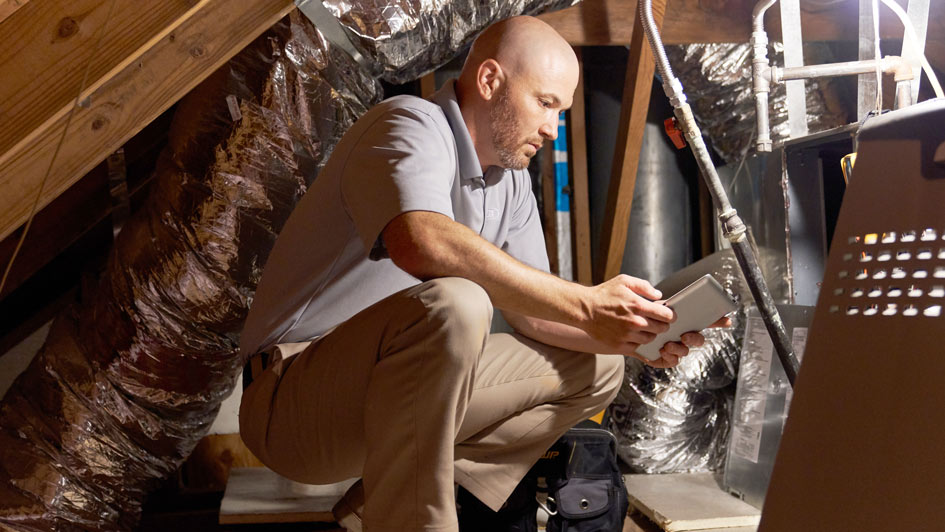
Where you aware that more than 50 percent of your home’s energy costs are needed for your heating and cooling? This is why it’s critical to have an energy-efficient HVAC system.
Furnace efficiency standards were last updated to an Annual Fuel Utilization Efficiency (AFUE) rating of 80% in 2015. This rating system measures how effective your furnace is at natural gas into heat. An AFUE rating of 80% means your furnace will waste about 20% of the fuel it uses while producing heat.
In 2022, the Biden Administration proposed new energy-efficiency standards for residential gas furnaces that would substantially lower emissions, save consumers money and encourage sustainability.
These revised standards are estimated to:
- Save Americans $1.9 billion annually.
- Lower carbon emissions by 373 million metric tons and methane emissions by 5.1 million tons over 30 years, the equivalent of what 61 million homes emit each year.
Starting in 2029, the proposed rule would mandate all new gas furnaces to feature AFUE ratings of 95%. This means furnaces would convert nearly 100% of the gas into usable heat.
So what does all of this mean for your existing furnace in 2023? For the time being, very little, as the proposed rule will not go into effect until 2029 at the earliest and doesn’t affect furnaces that are already in use.
But if you need furnace replacement in soon, highly energy-efficient furnaces are already available. Learn how these furnaces can save you money on your utility bills.
Guide to Condensing Furnaces
How Condensing Furnaces Work
A condensing furnace is a type of heating system that uses a secondary heat exchanger to trap wasted heat from the furnace's exhaust gases. This limits the quantity of energy wasted, increases energy efficiency and lowers greenhouse gas emissions. It also will take less natural gas to produce the same volume of heat when comparing one to other types of furnaces.
How Condensing Furnaces Differ from Non-Condensing Furnaces
The main difference between a condensing furnace and a non-condensing furnace is condensing models use a secondary heat exchanger to collect any wasted heat from its exhaust gases, while the latter does not.
How Long Condensing Furnaces Last
The life span of a condensing furnace will depend on the brand, model and other factors. Usually, a condensing furnace should last between 10-20 years with proper maintenance and regular service. If your heating system doesn’t have regular furnace maintenance, the equipment may not last as long.
Why Condensing Furnaces Are More Expensive
Generally, condensing furnaces type of system is a lot more efficient than standard, single-speed furnaces, as it only consumes the minimum amount of energy required to heat your home, resulting in more savings on your utility bill.
Many variable-speed furnaces are condensing furnaces, although a few are available in non-condensing models with lower AFUE ratings. If a manufacturer wants a furnace to be classified as a condensing furnace, it must offer an AFUE rating of 90% or higher.
Do Variable-Speed Furnaces Run All the Time?
A variable-speed furnace doesn’t run all the time. Alternatively, it runs at different speeds according to the temperature in your Pflugerville home as well as the amount of energy it needs to reach that temperature.
When sufficient energy is demanded to maintain your preferred temperature level, the furnace will increase to a higher speed to handle the demand. Doing this will ensure more efficient heating in your home while also offering quieter operation.
Guide to Two-Stage Furnaces
Two-Stage Furnaces: What They Are and How They Work
As the name suggests, a furnace with two levels of operating (high or low) is called a two-stage furnace. When set to the low stage, the furnace runs at a reduced capacity to help maintain the preferred temperature at your home more efficiently. During the high stage, the furnace will instead operate at full capacity to meet demands for increased heat. With a two-stage furnace, you can enjoy greater energy efficiency and steady temperatures all across your home.
While two-stage furnaces are highly efficient, not all all types are condensing furnaces.
Does a Two-Stage Furnace Operate All the Time?
A two-stage furnace should not run constantly. In the low stage of operation, the furnace performs at reduced capacity in order to maintain a preferred temperature more efficiently within your home. When a greater demand for energy is needed to maintain the set temperature, the heating system will switch to its high stage and runs at full capacity. As such, two-stage furnaces are powerful enough to help reduce energy costs without operating around the clock.
Contrasting Two-Stage and Variable-Speed Furnaces
Two-stage furnaces have two stages of functionality, low and high. During the low stage, the furnace performs at reduced capacity in order to maintain a desired level of comfort within your home. When a greater demand for warmth or cooling is needed, the furnace will switch to its high stage and operate at full capacity.
Variable-speed furnaces, meanwhile, can function at a variety of speeds in order to uphold a comfortable temperature at home. As such, variable-speed furnaces offer greater savings on your utility bills .
Differences Between One- and Two-Stage Furnaces
One-stage furnaces have a single stage fan speed and operate either at full power or not at all. This means that the furnace runs constantly in order to maintain a desired comfort level at home.
Two-stage furnaces, by comparison, have two stages of operation, low and high. During the low stage, the furnace runs at lower capacity in order to maintain the desired temperature more efficiently. When additional warmth or cooling is desired, the furnace will change over to its high stage and operate at peak capacity.
Make Your Furnace Installation Appointment with Evenaire Heating & Air Conditioning Today
Making sense of modern furnace technology can be confusing. That’s why Evenaire Heating & Air Conditioning specialists are here to help with a free, no-pressure quote for furnace installation. We’ll assess your home, your heating requirements and your budget before helping you find the right solution. Call us at 512-355-1482 to get started today!



